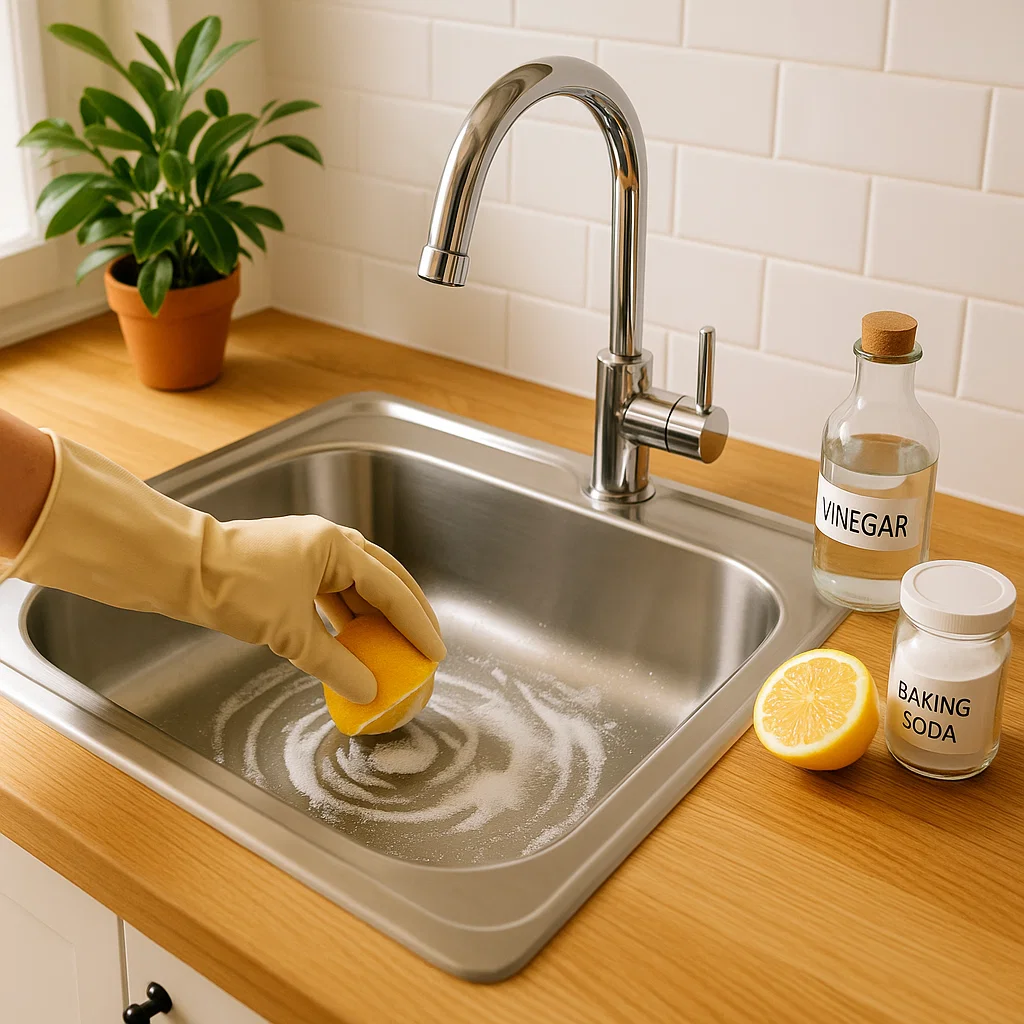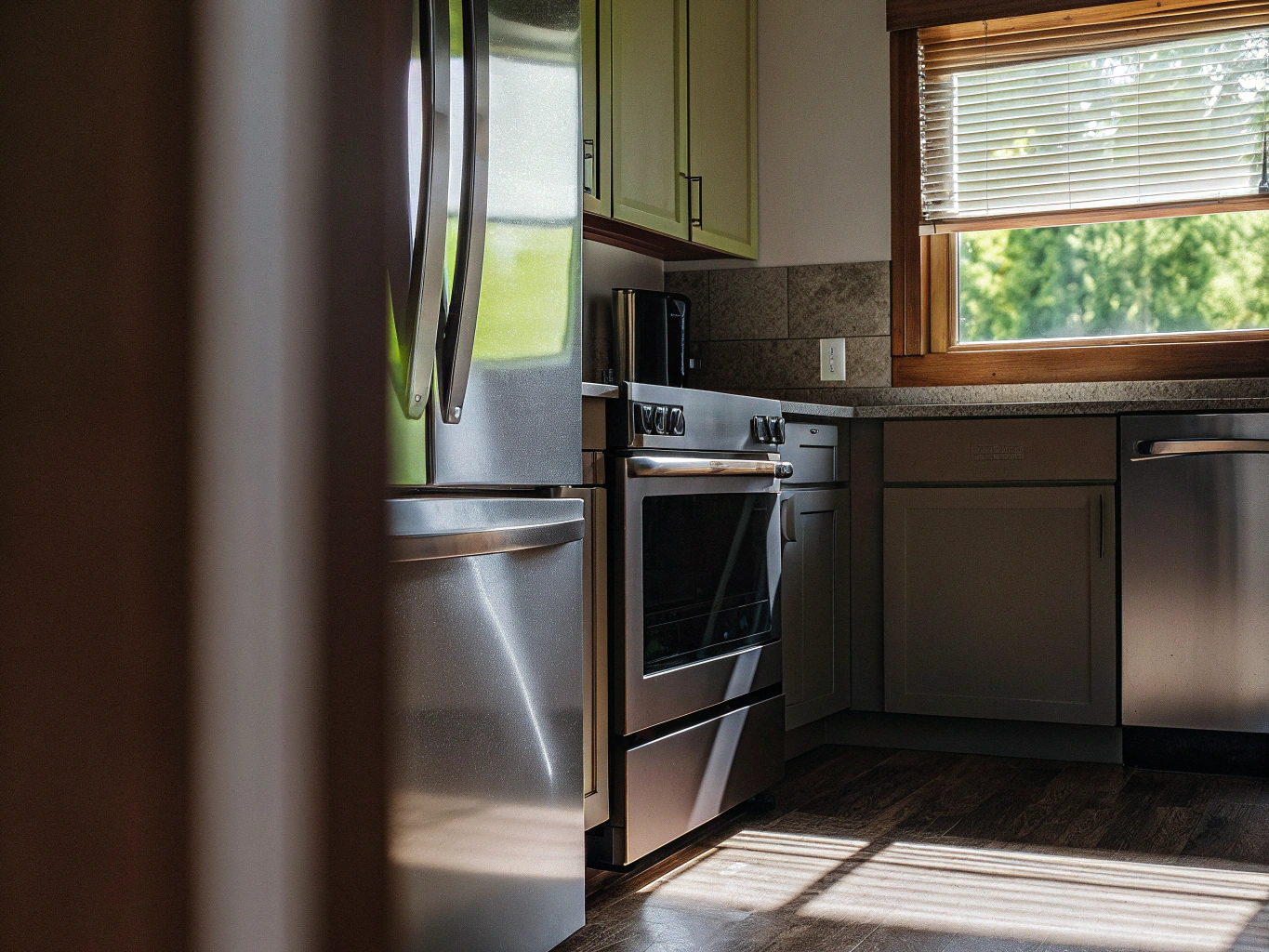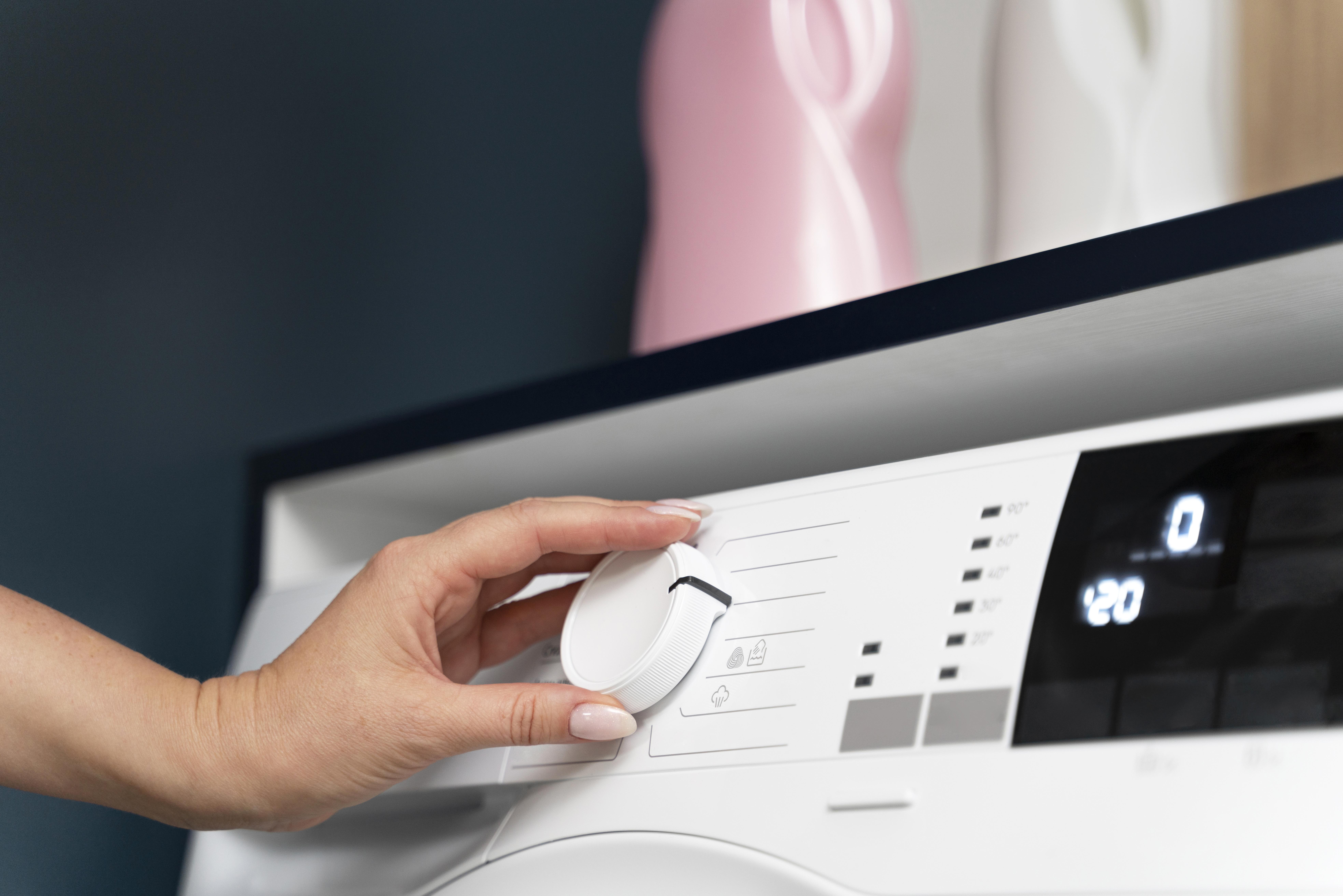Your kitchen sink is one of the hardest-working spots in your home. But while you’re busy keeping counters and dishes clean, grease, food particles, and bacteria quietly build up in the sink itself. In this guide, we’ll show you how to deep clean your kitchen sink naturally—without harsh chemicals—and how LuminaLife can help you maintain a fresher, healthier kitchen.

Most homeowners wipe down their sinks once a day: either after doing dishes, or right before company comes over. It looks shiny and spotless—but there’s a big difference between a clean sink and a sanitary one.
Drain and stopper: perfect environment for bacteria, mold.
Faucet and handles: splatter, fingerprints, soap scum.
Sink rim and edges: grease, crumbs, hidden grime.
Inside the cabinet under the sink: dusty, cluttered, maybe moldy.
If your kitchen sink has any foul odors, slimy film, or unsightly black spots around the drain, it’s your cue to grab a sponge and get to work.
Bleach is an effective disinfectant—it does kill the bacteria in your sink. But it’s also one of the most toxic common household cleaners. Bleach fumes are dangerous, especially in enclosed areas. Long-term exposure irritates your lungs, skin, and eyes. And bleach is not food-safe, nor is it recommended for certain sink finishes (like matte black or brushed gold fixtures).
That’s why we always recommend natural, non-toxic, environmentally-friendly solutions that are safe for you, your family, and the planet.
The list of items below is safe, natural, and probably already in your pantry. Here’s what you’ll need:
Follow this kitchen sink cleaning routine once a week for sparkling clean, odor-free results. If you haven’t deep cleaned in a while, it may take you 30–40 minutes the first time. But as you get in the habit, it will be much faster!
Remove everything from your sink:
Sprinkle baking soda liberally across the whole sink basin, front to back. Use a damp sponge or cloth to scrub in circular motions.
💡 Pro tip: Add a small amount of salt to areas that need extra scrubbing, like around the drain or metal rings.
Don’t use steel wool or wire brushes, especially on stainless steel or porcelain-coated sinks, as it can scratch the finish.
Spray a mixture of vinegar and water (50/50 ratio) around the faucet base, spout, and handles. Allow it to sit for a few minutes, then scrub with a toothbrush to remove build-up and water spots.
For tough grime or calcium deposits:
Drains are the source of most kitchen sink odors, so this step is essential.
Natural drain cleaner:
💡 Drop a few drops of tea tree or lemon oil down the drain at the end for a fresh scent.
Take a lemon, cut it in half, and rub it directly on the sink surface. The citric acid helps:
Dry the sink with a clean towel. Wetness and standing water attracts bacteria.
Then:
Bonus: How to Keep it Clean Longer
Once you’ve got your kitchen sink clean and shining, you don’t want it to go back to that dirty state! Keep it clean with these simple tips:
✅ Daily :
✅ Weekly :
✅ Monthly :
Depending on the type of sink you have, you’ll want to take certain things into account:
If you have questions about how to clean your specific sink, we’re happy to help. At LuminaLife, we always personalize our cleaning methods to your unique surfaces and materials.
We’re all busy, so even if you’re on top of your kitchen cleaning game, some sinks require professional deep cleaning from time to time. If your sink is constantly smelly no matter how much lemon or vinegar you use, or if your kitchen sink drain is gurgling, backing up, or draining slowly, then you probably have grease or biofilm buildup deep in your pipes.
That’s when it’s time to call a professional deep cleaning team like LuminaLife.
What we offer:
At LuminaLife, we believe that a healthy home is part of a healthy planet. That’s why we use green cleaning solutions, avoid toxic chemicals like bleach, and choose biodegradable products whenever possible.
Whether it’s a deep clean as part of the season, or as part of an ongoing service plan, our kitchen cleaning packages leave your space not just looking clean—but truly sanitized and refreshed.
If you’re ready to say goodbye to:
It’s time to deep clean your kitchen sink the right way. Let us do it with care, precision, and safety in mind.
👉 Get a free quote today and let LuminaLife take care of the hard work.
A really clean kitchen isn’t just about spotless counters and shiny appliances—it starts with where the mess begins: the sink.
With the right natural ingredients and a little elbow grease, you can deep clean your kitchen sink like a pro. But if you want long-term results and peace of mind, the best way to go is to partner with a professional cleaning service.
Want a kitchen sink that looks brand new and smells fresh every day?
📞 Call LuminaLife to schedule a deep kitchen clean today.

Stainless steel appliances can quickly lose their shine due to fingerprints, streaks, and everyday use. This guide shares five simple, effective cleaning tips to keep your kitchen looking clean, polished, and streak-free all year round.
Read more
The holidays are over, decorations are packed away, and winter mess is left behind. This step-by-step post-holiday cleaning checklist helps you refresh every room, stay organized, and start 2026 with a clean, calm home.
Read more
While a washing machine may look clean, detergent residue, moisture, and bacteria can build up inside over time. This buildup can cause odors, mold, and reduced cleaning performance. This guide explains why regular maintenance is important and outlines seven effective cleaning methods for both front-load and top-load washers. It provides step-by-step instructions for deep-cleaning the drum, rubber seal, filter, and detergent drawer using common household items such as vinegar, baking soda, and, when needed, bleach. Additional tips address issues related to hard water and Calgary’s cold climate to help maintain your washing machine long-term.
Read more